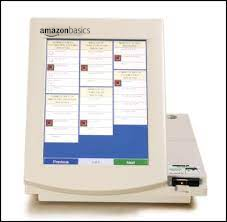Alaska’s Nonpartisan Pick One Primary Election may seem like a good idea on the surface, but when held up to the light for further examination, one begins to see the anti-democratic underpinning of this novel idea.
In Alaska’s Division of Elections FAQ, they make it clear:
Can a candidate with no party affiliation still run in the general election by petition?
No. Under the new law, the nominating petition process no longer allows for candidates to run in the general election using the nominating petition process. If a candidate did not appear on the primary election ballot or was not successful in advancing to the general election, they may run as an official write-in candidate as long as they file a letter of intent at least 5 days prior to the general election.
Why would Alaska want to limit ballot access to four individuals? Especially during today’s electoral political climate and increased interest in the general public.
With today’s voting technology, a ballot with many choices is read, submitted, and processed. There is no excuse to limit the choices on the ballot.
And sadly, this idea is gaining a foothold in other States as well.
